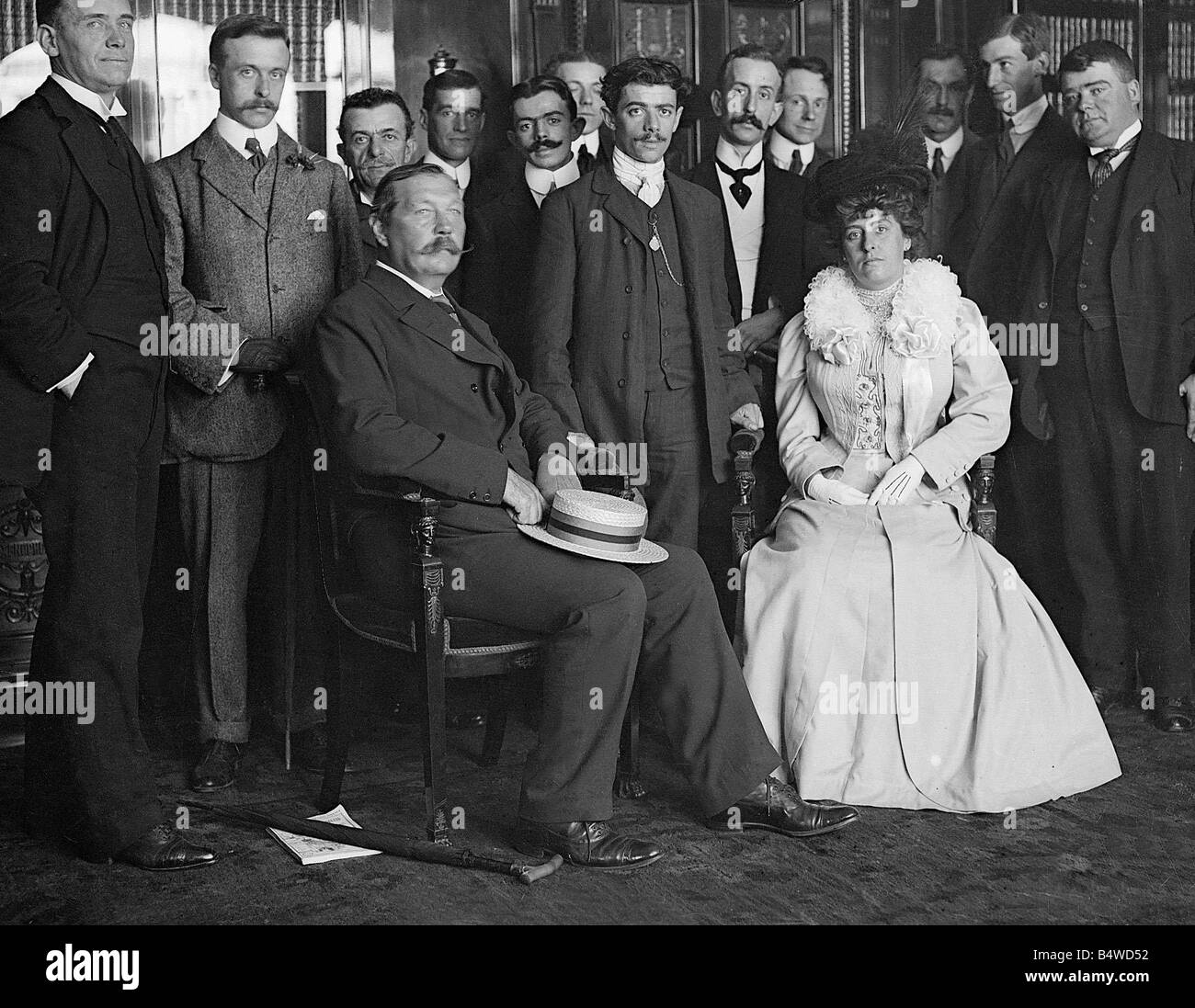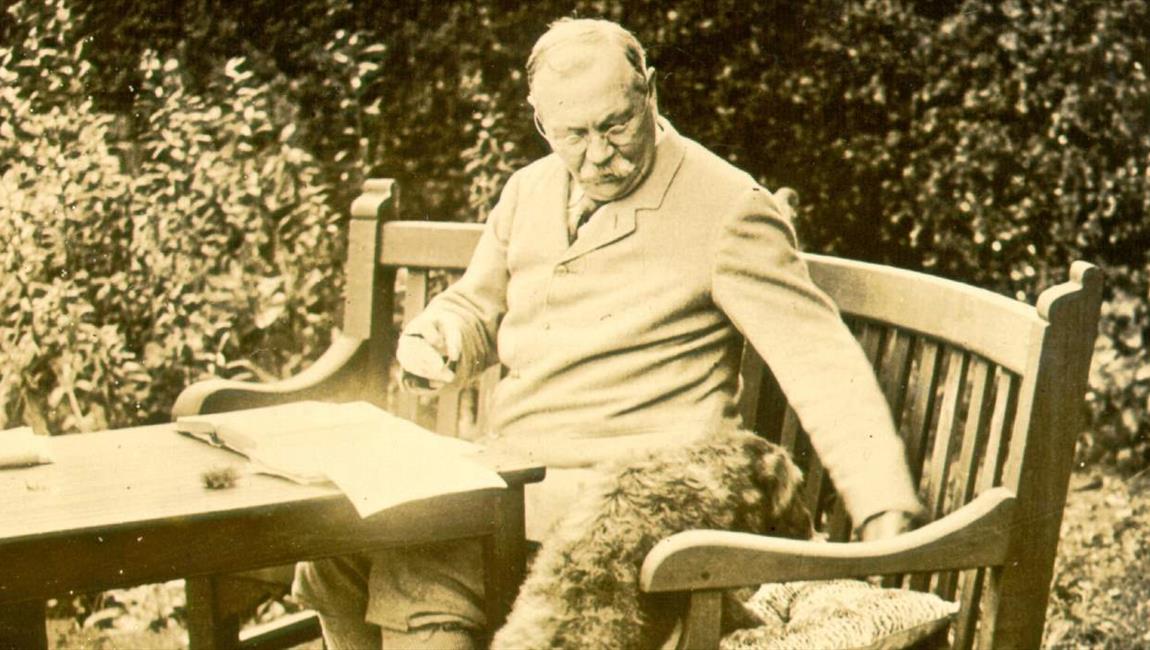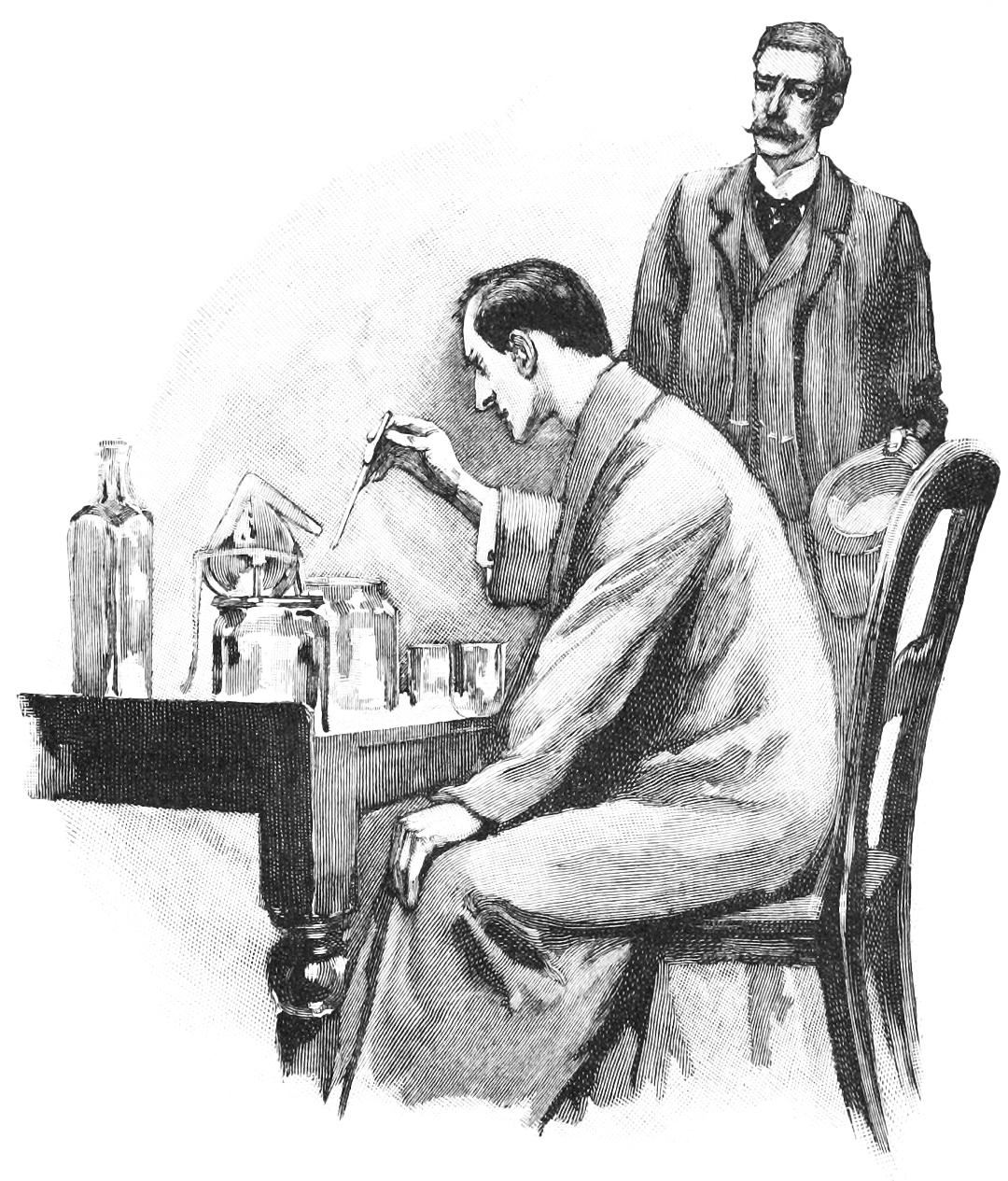Sir Arthur Conan Doyle: The Literary Legacy of a Master Storyteller
 Sir Arthur Conan Doyle, a name synonymous with mystery and intrigue, remains one of the most influential figures in the history of literature. Born on May 22, 1859, in Edinburgh, Scotland, Doyle's legacy extends far beyond his most famous creation, the legendary detective Sherlock Holmes. With a diverse body of work spanning novels, short stories, essays, and historical fiction, Doyle's contributions to the literary world are vast and enduring, cementing his status as a master storyteller whose influence continues to resonate to this day.
Sir Arthur Conan Doyle, a name synonymous with mystery and intrigue, remains one of the most influential figures in the history of literature. Born on May 22, 1859, in Edinburgh, Scotland, Doyle's legacy extends far beyond his most famous creation, the legendary detective Sherlock Holmes. With a diverse body of work spanning novels, short stories, essays, and historical fiction, Doyle's contributions to the literary world are vast and enduring, cementing his status as a master storyteller whose influence continues to resonate to this day.
Doyle's early life was marked by tragedy and adventure, shaping the themes and characters that would later populate his literary works. Raised in a family of Irish descent, Doyle grew up surrounded by stories of heroism and adventure, which fueled his imagination and instilled in him a love of storytelling. Tragically, his early years were also marred by the loss of family members, including his father, Charles Altamont Doyle, whose descent into alcoholism left a profound impact on young Arthur.
Despite these challenges, Doyle excelled academically, studying medicine at the University of Edinburgh and later practicing as a physician. It was during his time as a medical student that Doyle's passion for writing began to emerge, as he penned his first short stories and essays for various publications. While his medical career provided financial stability, Doyle's true calling lay in the world of literature, and he soon turned his full attention to writing.
Doyle's breakthrough came in 1887 with the publication of "A Study in Scarlet," the debut of Sherlock Holmes and Dr. John Watson. The novel introduced readers to the iconic detective duo and laid the groundwork for what would become one of the most enduring literary franchises of all time. Holmes, with his razor-sharp intellect, keen powers of observation, and eccentric personality, captured the imagination of readers from the very beginning, establishing Doyle as a master of the detective genre. Following the success of "A Study in Scarlet," Doyle continued to write prolifically, producing a steady stream of Sherlock Holmes stories that were serialized in magazines such as "The Strand." From "The Adventures of Sherlock Holmes" to "The Hound of the Baskervilles" and "The Return of Sherlock Holmes," Doyle's tales of mystery and deduction captivated audiences around the world, elevating the detective genre to new heights of popularity.
Following the success of "A Study in Scarlet," Doyle continued to write prolifically, producing a steady stream of Sherlock Holmes stories that were serialized in magazines such as "The Strand." From "The Adventures of Sherlock Holmes" to "The Hound of the Baskervilles" and "The Return of Sherlock Holmes," Doyle's tales of mystery and deduction captivated audiences around the world, elevating the detective genre to new heights of popularity.
Yet, despite Holmes' overwhelming success, Doyle's literary ambitions extended beyond detective fiction. Throughout his career, he explored a wide range of genres and themes, from historical novels like "The White Company" and "Micah Clarke" to science fiction and fantasy works such as "The Lost World" and "The Poison Belt." Doyle's versatility as a writer allowed him to experiment with different styles and subjects, showcasing his mastery of storytelling in all its forms. In addition to his fiction writing, Doyle was also an accomplished essayist and social commentator, using his platform to advocate for causes such as justice reform, spiritualism, and the promotion of literature. His interest in spiritualism, in particular, led him to investigate paranormal phenomena and engage in debates with skeptics, a pursuit that both fascinated and perplexed his contemporaries.
In addition to his fiction writing, Doyle was also an accomplished essayist and social commentator, using his platform to advocate for causes such as justice reform, spiritualism, and the promotion of literature. His interest in spiritualism, in particular, led him to investigate paranormal phenomena and engage in debates with skeptics, a pursuit that both fascinated and perplexed his contemporaries.
Despite his many accomplishments, Doyle's life was not without its controversies and contradictions. His fervent support for causes such as the Boer War and his defense of controversial figures like George Edalji and Oscar Slater often put him at odds with public opinion and led to accusations of bias and prejudice. Likewise, his complicated relationship with Sherlock Holmes, whom he famously attempted to kill off in "The Final Problem," reflects the tension between an author and his most famous creation. In the years following Holmes' supposed demise, Doyle continued to write, albeit with mixed success. While he produced several notable works, including the historical novel "The Great Boer War" and the adventure story "The Lost World," none achieved the same level of popularity or critical acclaim as his Sherlock Holmes stories. Faced with financial difficulties and declining health, Doyle eventually returned to the world of Holmes, penning a series of new stories that reunited the detective with his faithful companion, Dr. Watson.
In the years following Holmes' supposed demise, Doyle continued to write, albeit with mixed success. While he produced several notable works, including the historical novel "The Great Boer War" and the adventure story "The Lost World," none achieved the same level of popularity or critical acclaim as his Sherlock Holmes stories. Faced with financial difficulties and declining health, Doyle eventually returned to the world of Holmes, penning a series of new stories that reunited the detective with his faithful companion, Dr. Watson.
In the decades since his death in 1930, Doyle's literary legacy has only continued to grow, with Sherlock Holmes remaining as popular and beloved as ever. From countless adaptations in film, television, and theater to scholarly analyses and fan fiction, Holmes' influence can be felt in every corner of popular culture. Moreover, Doyle's other works, though often overshadowed by the success of Sherlock Holmes, continue to be appreciated for their literary merit and historical significance. Doyle's literary influence extends beyond the realm of fiction, touching on broader social and cultural issues that continue to resonate in contemporary society. His advocacy for justice reform, for instance, reflects a commitment to principles of fairness and equality that remain relevant today. In his defense of individuals like George Edalji and Oscar Slater, who were wrongfully accused and convicted of crimes they did not commit, Doyle demonstrated a keen sense of empathy and a willingness to challenge prevailing attitudes and prejudices.
Doyle's literary influence extends beyond the realm of fiction, touching on broader social and cultural issues that continue to resonate in contemporary society. His advocacy for justice reform, for instance, reflects a commitment to principles of fairness and equality that remain relevant today. In his defense of individuals like George Edalji and Oscar Slater, who were wrongfully accused and convicted of crimes they did not commit, Doyle demonstrated a keen sense of empathy and a willingness to challenge prevailing attitudes and prejudices.
Furthermore, Doyle's interest in spiritualism and the supernatural speaks to humanity's enduring fascination with the unknown and the unseen. While his beliefs may have been controversial at the time, Doyle's exploration of paranormal phenomena and his encounters with mediums and psychics reflect a broader curiosity about the mysteries of existence and the possibility of life beyond the material world. In an age marked by rapid scientific advancement and technological innovation, Doyle's fascination with the supernatural serves as a reminder of the enduring allure of the unexplained. Moreover, Doyle's legacy extends beyond the written word, encompassing a range of cultural and artistic expressions that continue to celebrate and reinterpret his work. From adaptations in film and television to stage productions, graphic novels, and video games, Sherlock Holmes has been brought to life in countless ways, each iteration offering a fresh perspective on the iconic detective and his adventures. Likewise, Doyle's other works, though less well-known, have inspired adaptations and reimaginings that highlight their enduring relevance and appeal.
Moreover, Doyle's legacy extends beyond the written word, encompassing a range of cultural and artistic expressions that continue to celebrate and reinterpret his work. From adaptations in film and television to stage productions, graphic novels, and video games, Sherlock Holmes has been brought to life in countless ways, each iteration offering a fresh perspective on the iconic detective and his adventures. Likewise, Doyle's other works, though less well-known, have inspired adaptations and reimaginings that highlight their enduring relevance and appeal.
In recent years, there has been a renewed interest in Doyle's life and work, spurred in part by the celebration of significant anniversaries and milestones. Events such as the 160th anniversary of his birth and the 100th anniversary of his death have prompted retrospectives, exhibitions, and scholarly conferences dedicated to exploring Doyle's legacy and its impact on literature and popular culture. Moreover, ongoing research and scholarship continue to shed new light on Doyle's life and career, revealing fresh insights into his motivations, influences, and creative process. As we reflect on the legacy of Sir Arthur Conan Doyle, we are reminded of the enduring power of storytelling to inspire, entertain, and provoke thought. Through his timeless tales of mystery, adventure, and intrigue, Doyle captured the imagination of readers around the world and left an indelible mark on the literary landscape. From the iconic character of Sherlock Holmes to the rich tapestry of historical fiction and social commentary that comprises his body of work, Doyle's influence can be felt in every corner of literature and popular culture. As we celebrate his life and legacy, we are reminded of the profound impact that one man's imagination can have on the world.
As we reflect on the legacy of Sir Arthur Conan Doyle, we are reminded of the enduring power of storytelling to inspire, entertain, and provoke thought. Through his timeless tales of mystery, adventure, and intrigue, Doyle captured the imagination of readers around the world and left an indelible mark on the literary landscape. From the iconic character of Sherlock Holmes to the rich tapestry of historical fiction and social commentary that comprises his body of work, Doyle's influence can be felt in every corner of literature and popular culture. As we celebrate his life and legacy, we are reminded of the profound impact that one man's imagination can have on the world.































